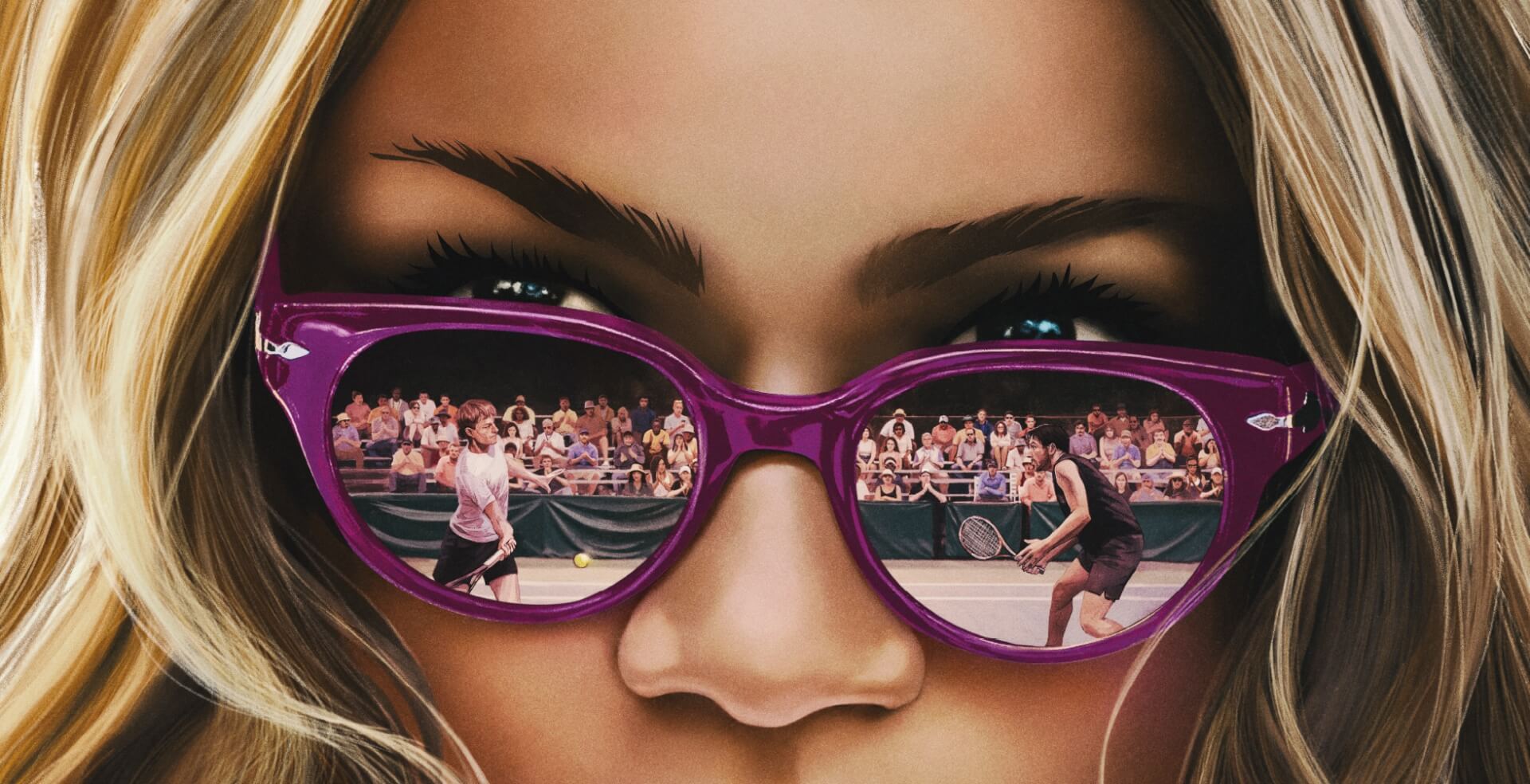CHALLENGERS. It Takes Three [REVIEW]

Tennis is an exceptionally erotic sport. From the shouts emitted by players, through the rhythmic bouncing of the ball, intense emotions on the court, and powerful racket strokes, to the stylish dress code required of players and the luxurious atmosphere accompanying the biggest tournaments. The most unforgettable matches are those in which both sides give their all, and their shared effort transforms into a passionate dance. “Tennis is like a relationship” – Zendaya’s Challengers character says unnecessarily in one scene, because this analogy is already quite clear in the film.
Luca Guadagnino, one of the most sensuous contemporary directors, turns this sport into a metaphor for passion and complex love: two friends for one girl, one girl for both friends, and eventually friends for each other. His film is elegant, understated, and sexy like a tennis skirt, but judging by initial audience comments, it seems to seduce primarily those interested in cinema style and room for interpretation, not just the plot.

In short, because following the plot is only half the fun: Challengers tells of a professional-romantic triangle among tennis players. Patrick (Josh O’Connor) has talent and charisma but dislikes the hard work necessary for success in sports. Art (Mike Faist) lacks talent and charisma but can diligently work on himself. Tashi (Zendaya) has it all – talent, charisma, and industriousness, along with determination, intelligence, and spunk. Unfortunately, she also has bad luck, which painfully shatters her sports dreams.
Guadagnino impresses with the ease with which he tells their shared story, which despite numerous temporal jumps, flashbacks, and ellipses, remains fully understandable and pulses with energy like the best match. He impresses with the lightness with which he plays with individual sequences—especially the final one, where we get close-ups contemplating the beauty of sweat dripping from players’ faces, a POV shot of a tennis ball struck by rackets and flying over the net at dizzying speed, and finally a conversation between two old friends conducted without words, because everything important is communicated in the sport’s best-known language. Guadagnino, in court scenes, is an expressionist seeking intense experiences. When he wants to portray intimacy, he becomes a tender painter of details and an extractor of beauty from fleeting moments, much like an impressionist. Once again, he demonstrates in a unique way how he creates physical closeness and erotic tension on screen. In Challengers, the chemistry between the talented young actors fills every frame, despite (thanks to?) the absence of any explicit sex scenes. Another hero of the film is the electronic, predatory music by Trent Reznor and Atticus Ross, which I’ve been looping since leaving the cinema.
In Challengers, Guadagnino proposes a somewhat different approach to sports cinema. He rejects the conventional schema of motivation, overcoming limitations, and climbing to the top, and instead shows what life with tennis looks like off the court as well. He tells of people who speak, think, and dream almost exclusively about tennis, for whom talking about sports is also a conversation about relationships, and what happens in a match or training translates into all other spheres of life. The phases of relationships in the film mirror the phases of a sporting career—from youthful enthusiasm and genuine rookie excitement to settling into a learned role, making the most advantageous choices, and fulfilling the expectations of a Grand Slam veteran. (Minor spoilers ahead.) Is Tashi with Art only because she can stay in the cruelly deprived world of tennis with him, and is Art professionally only with her because he knows that Tashi is the only thing that interests him? Does Tashi keep returning to Patrick because he reminds her of the times when she herself was a star, or because like her, he has so much passion, inaccessible to Art? Who is Tashi to both men—an unattainable dream of greatness? The catalyst for their previously hidden rivalry? A sporting genius they will never fully understand? An avalanche that hits their once calm life and prevents a return to normalcy?
I could analyze this seemingly simple story of rivalry, love, unfulfillment, passion, and the collision of dreams with the prose of life for much longer. However, I’m writing a review, not an essay. Perhaps there will be time for a longer interpretative piece someday, but for now, fresh from the screening, as a reviewer—I recommend it. Especially to those who enjoy matches where the trajectory of the ball subtly rotates sideways, landing in unexpected places, because that’s exactly what Guadagnino serves us in Challengers.

